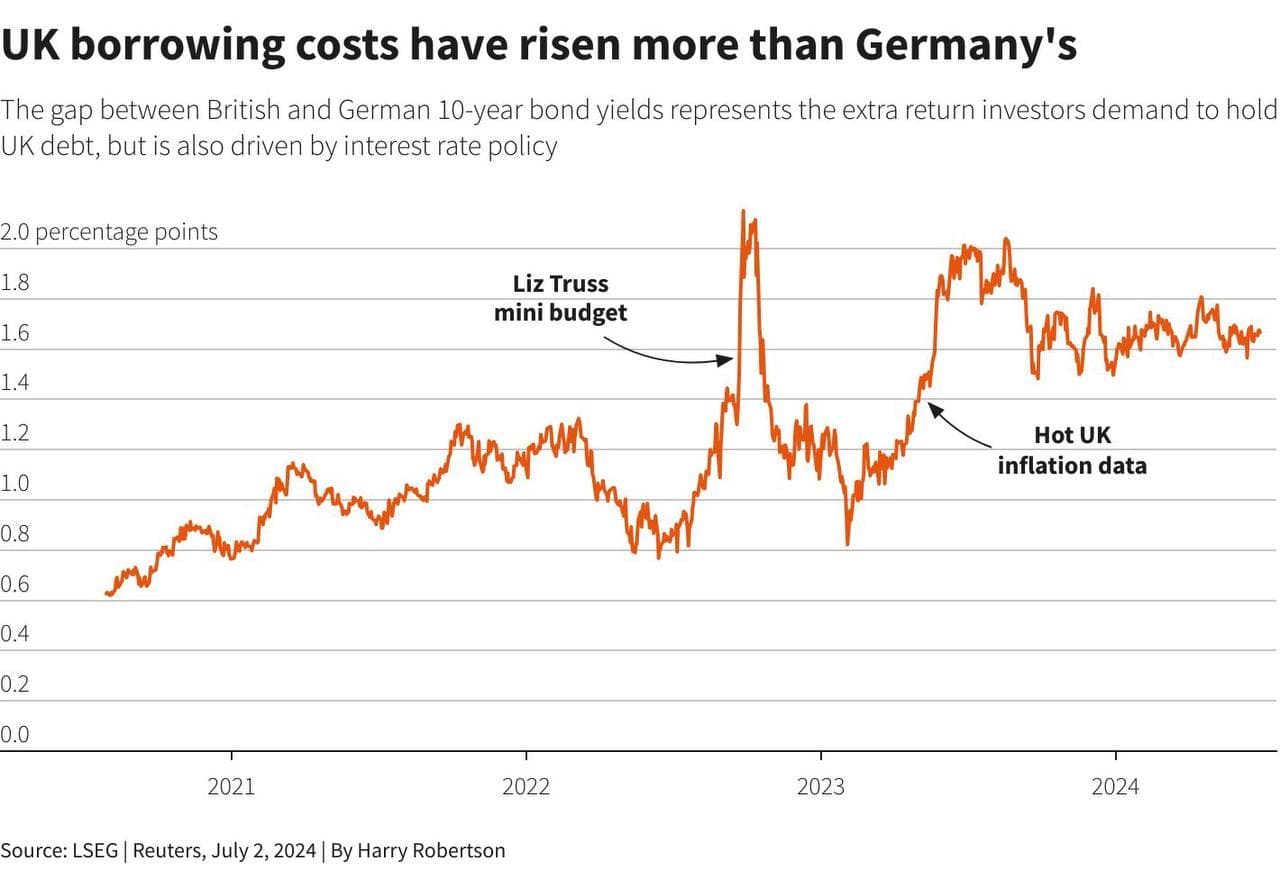The Bank of England"s (BoE) decision not to intervene in the bond market last year has resulted in a significant increase in UK debt yields, adding at least 20 basis points to borrowing costs. This move, referred to as the "Truss shock," has raised questions about the fiscal space available to the government, which could have been expanded had the central bank acted differently.
In September 2022, the UK was plunged into economic uncertainty following then-Prime Minister Liz Truss"s controversial fiscal policies. The BoE"s failure to backstop the bond market during this crisis exacerbated the situation, leading to a surge in yields that reached a 27-year high earlier this year. Analysts estimate that the lack of intervention added substantial costs to government borrowing, which could have been used for public services or economic support.
The ramifications of this decision continue to unfold as the UK grapples with rising inflation and looming fiscal challenges. Experts suggest that the extra 20 basis points in yields translates to billions in additional borrowing costs for the government, limiting its ability to respond to economic pressures effectively.
As the UK economy faces headwinds, the implications of the BoE"s actions remain clear. Without timely intervention, the government’s fiscal strategies may be constrained, impacting its capacity to navigate future economic challenges. For more on the current state of UK bond yields, see our previous reports on the issue.







![[Video] Gunfire between Iraqi security forces and Sadr militias in Baghdad](/_next/image?url=%2Fapi%2Fimage%2Fthumbnails%2Fthumbnail-1768343508874-4redb-thumbnail.jpg&w=3840&q=75)
